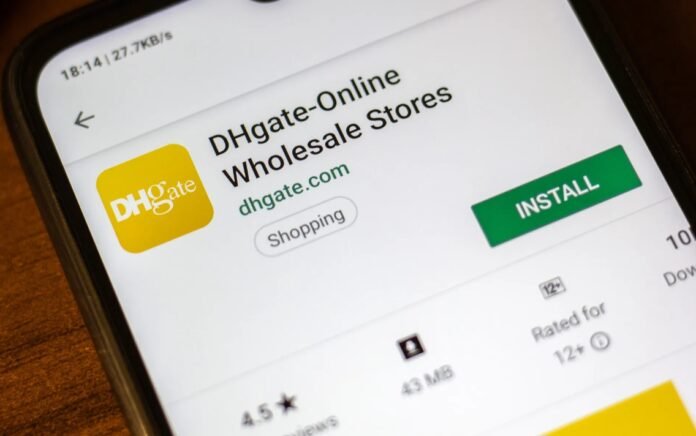- History of DHgate: Launched in 2004, DHgate was originally a B2B platform, facilitating bulk purchases from Chinese manufacturers. It’s grown into a global platform, connecting millions of buyers and sellers. Despite its long existence, it hasn’t always been in the spotlight.
- Why Is It Popular Now?: Recently, the app has gained traction, largely due to the impact of tariffs imposed by the Trump administration on China. As consumers and businesses look for ways to offset increased costs due to these tariffs, they’ve turned to platforms like DHgate. The app also saw increased awareness via TikTok, with videos suggesting that consumers could bypass price hikes on luxury goods by buying unbranded or lesser-known versions directly from Chinese factories.
- How Does DHgate Work?: It functions like many other online marketplaces where users can search for items, view listings from various sellers, and make purchases. Many items on DHgate are unbranded or “dupes” of well-known products, with bulk purchasing options available.
- Is DHgate Safe?: The app offers buyer protection, holding payments until products are received and inspected. While it’s not inherently unsafe from a data perspective, quality control is a concern. The platform is known for offering counterfeit goods, and customs may seize counterfeit items. Reviews and ratings can be helpful for avoiding scams, but caution is still advised when purchasing.
- Scams and Counterfeits: While the app has grown, it still has its fair share of issues, including scam sellers and counterfeit products. The rise of viral TikTok videos has amplified this, but there’s still a risk of receiving low-quality or even illegal goods, especially luxury knockoffs.
Conclusion: DHgate’s growth is an interesting example of how global trade and e-commerce are shifting in response to geopolitical events like trade tariffs. It also underscores the power of social media in driving consumer behavior. However, while it offers the potential for lower-cost goods, buyers need to proceed with caution due to quality control and counterfeiting issues.




